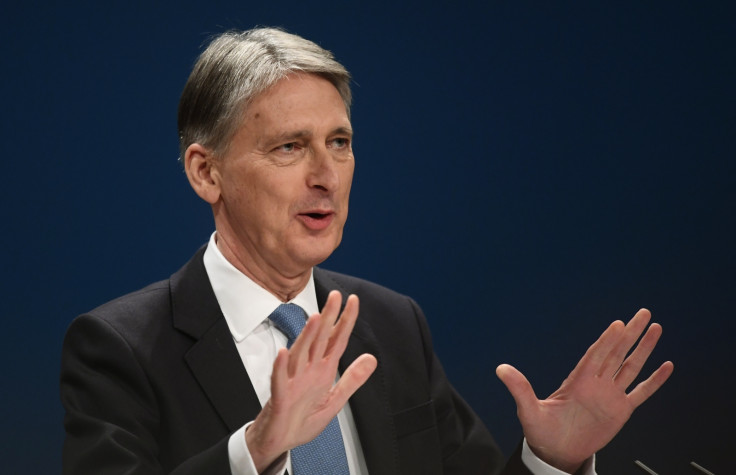UK could face £25bn hole in public finances by 2020, IFS says
This is said to limit UK Chancellor Philip Hammond's options in the upcoming autumn statement.

There will be a £25bn ($31.01bn) hole in the UK's public finances by the end of the current parliament, which will limit UK Chancellor Philip Hammond's options in the upcoming autumn statement, the Institute for Fiscal Studies (IFS) has predicted in its latest report.
By 2019–20, zero changes in policy coupled with lower growth could result in tax revenues being £31bn lower than forecast in the budget, the institute said in a statement on Tuesday, 8 November. This, it said, might be partially offset by "£6 billion lower spending if we stop any payments to the EU budget."
IFS added that the net effect of borrowing £25bn more than forecast in the budget, implied a deficit of £14.9bn, by the end of the decade. This is more than the £10.4bn surplus that former Chancellor George Osborne was aiming for in 2019-20.
This forecast follows recent reports that said Hammond would avoid setting any rigid targets in the upcoming autumn statement. This was to give the UK more fiscal options in the wake of the Brexit vote.
While Hammond has already said he would be scrapping Osborne's plans to run a budget surplus by the end of the parliament, he is said to have also told his cabinet colleagues recently that there would only be a modest fiscal stimulus. The chancellor, however, is said to have added that there was scope to spend more in future if economic growth starts to falter.
Thomas Pope, the author of IFS's latest report, said that Hammond, who had a difficult task going ahead, should act with caution. He was cited by the Guardian as saying, "The new chancellor's first fiscal event will not be easy. Growth forecasts are almost sure to be cut, leading to a significant increase in the deficit even if all the very challenging spending cuts currently planned are in fact delivered.
"Given the levels of uncertainty he might be wise to respond cautiously for now. Any new fiscal targets should be reasonably flexible. Any decisions to increase spending or cut taxes in the short run should be taken in the knowledge that significant further austerity after 2020 looks to be on the cards."
© Copyright IBTimes 2025. All rights reserved.





















